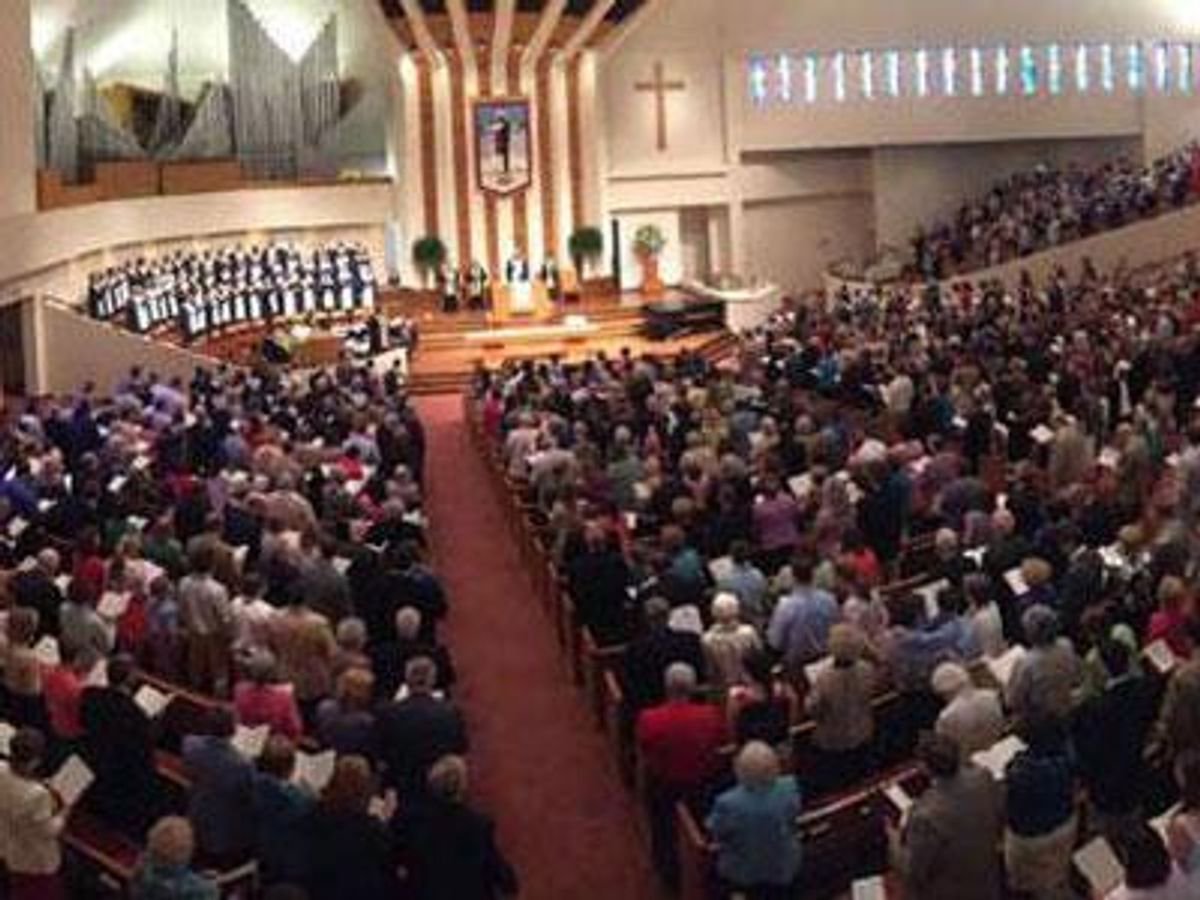A historic Baptist church in Greenville, S.C., has officially embraced LGBT equality.
This spring, after several months of discussion, the congregation of First Baptist Church Greenville approved the following "consensus statement," The Greenville News reports: "In all facets of the life and ministry of our church, including but not limited to membership, baptism, ordination, marriage, teaching and committee/organizational leadership, First Baptist Greenville will not discriminate based on sexual orientation or gender identity."
The church has historic ties to the Southern Baptist Convention, the nation's largest Protestant denomination, which considers homosexuality a sin, but disassociated itself from the Southern Baptists in 1999. First Baptist Greenville is now affiliated with the Cooperative Baptist Fellowship, a coalition of moderate Baptist churches that left the Southern Baptist group in 1991. The Cooperative Baptist Fellowship opposes same-sex marriage and ordination of LGBT ministers but allows affiliated churches to make their own policies on these matters. There are some other Baptist groups that affirm LGBT equality.
First Baptist Greenville's action is significant because of its long history in the city, which is also home to Bob Jones University, an ultraconservative Christian college. Founded in 1831, it was one of the five original downtown churches in Greenville. William Bullein Johnson, who helped organize the church, was the first president of the Southern Baptist Convention when it was founded in 1845 (the denomination was founded largely in defense of slavery, opposed by Baptist churches in the northern U.S., and for which the Southern Baptists apologized in 1995). First Baptist Greenville's meeting home was also the first home of the Southern Baptist Theological Seminary, now located in Louisville, Ky.
But with those Southern Baptist connections now in the past, First Baptist Greenville is free to be LGBT-embracing. When members began their talks last fall, "what I heard was, 'We need to do the right thing, regardless of what anybody thinks or says about us,'" senior minister Jim Dant told the News in a feature published over the weekend. "There were a few people who said, 'Are they going to start calling us the gay church in town?'"
In May, though, when the congregation was asked to stand to affirm the consensus statement, all but a few members did so, the News reports. Those who didn't were then asked to stand to agree to remain in fellowship in the church -- and they all finally stood.
"In some ways, it's going to open up a space for evangelical gay people to have a place again," Dant told the paper. "There will be a voice of biblical interpretation in the evangelical world that says the way this has been interpreted by the average preacher on AM radio every Sunday is not the only way that evangelicals read biblical literature."


















































































Viral post saying Republicans 'have two daddies now' has MAGA hot and bothered